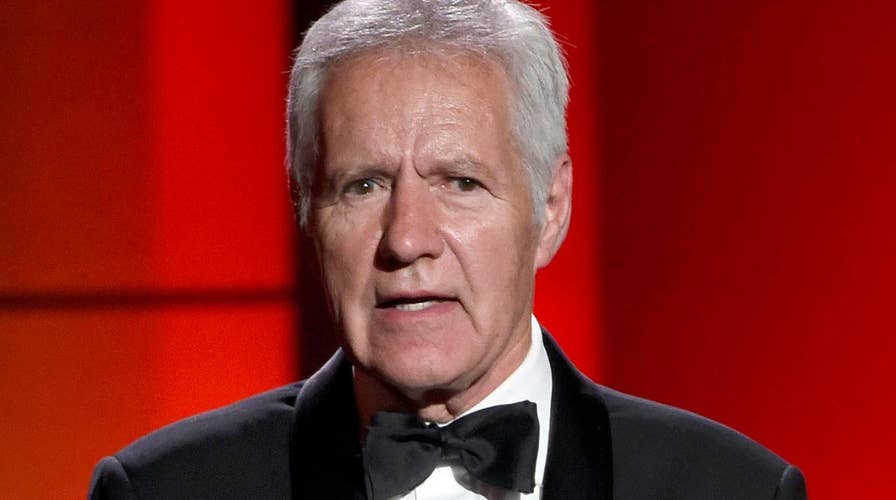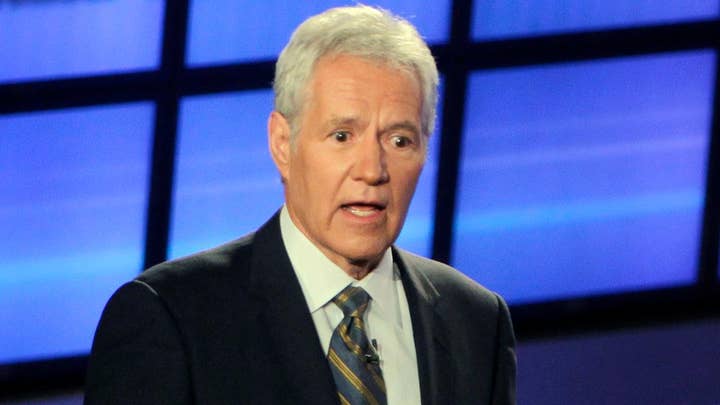What you need to know about pancreatic cancer after Alex Trebek's diagnosis
After the 'Jeopardy' host announces he has stage four pancreatic cancer, Dr. Marc Siegel explains the signs, symptoms and why the survival rate is so low.
The world was shocked this week by beloved longtime "Jeopardy!" host Alex Trebek's sudden announcement. Trebek who is 78 years old -- revealed that he has stage IV pancreatic cancer (spread to at least one other organ, generally the liver, lungs or stomach) and that his prognosis is likely grim.
From the way Trebek spoke about it, his cancer would appear to be adenocarcinoma of the head of the pancreas -- the most common type. People everywhere are wondering how he could have gone from apparent good health to this unfortunate illness overnight. I don’t know the details of his case but the sad truth is that this particular type of pancreatic cancer is one of the most aggressive cancers and most difficult to treat. Because it is situated deep in the body and spreads quickly, this kind of pancreatic cancer is widespread more than half the time by the time that symptoms first occur. These symptoms may include painless jaundice (yellow eyes), back pain, abdominal pain, weight loss and fatigue.
Who is at risk for pancreatic cancer? The groups most at risk are older men, cigarette smokers, diabetics, alcohol abusers and those with a family history of pancreatic cancer. It is difficult to diagnose and just as difficult to treat, with patients generally not living more than several months even with chemotherapy (most metastatic pancreatic cancer patients are treated with several drugs). This is because of the tumor’s aggressiveness and frequent late stage at time of diagnosis but also because adenocarcinoma of the pancreas is what’s known as a “cold” tumor, meaning it generally doesn’t have a lot of gene mutations or immune cells to target. There is variance to this and those with more “targets” may tend to survive longer. Treating pancreatic cancer requires a personalized approach.
According to Dr. Diane Simeone, Director of the Pancreatic Cancer Center at NYU Langone Health, “extensive research in pancreatic cancer is defining new subgroups of patients that may have much more favorable responses to different treatments (a personalized medicine approach), and an expanding number of promising therapies are being tested in clinical trials. A new clinical trial platform, Precision Promise, is soon to open that will create many more options for promising clinical trials for pancreatic cancer patients, especially for those with metastatic disease.”
Dr. Simeone, who is co-chair of Precision Promise’s executive leadership committee at the Pancreatic Cancer Action Network, said to me that “40 percent of pancreatic cancers can have a unique genomic signature that may guide a better therapeutic approach.” Simeone said that it is important that patients with pancreatic cancer be seen “in high volume centers with multidisciplinary expertise to develop the best treatment plan.”
In terms of managing risk factors, smoking cigarettes doubles your risk of getting pancreatic cancer and in fact 25 percent of pancreatic cancer patients are smokers. Being obese increases your risk by 20 percent and your risk goes up as you get older. Family history is a factor, especially among first degree relatives, though most patients with pancreatic cancer do not have a family history of it. Long-standing diabetes also increases your risk.
To show you how deadly pancreatic cancer is, according to the American Cancer Society over 56,000 people are diagnosed with it every year and over 45,000 people die from it.
Alex Trebek appears to have a very positive outlook, which reveals courage and presents him as a great role model once again for a public who lives in fear of being healthy one day and deathly ill the next.
We have all heard of medical miracles, and I believe in them strongly, as I wrote in my book, "The Inner Pulse, Unlocking the Secret Code of Sickness and Health." However, though there is evidence that a positive outlook can keep you healthier longer despite toxic treatments, there is no proof that it uniformly extends life.
CLICK HERE TO GET THE FOX NEWS APP
We can pray for Alex Trebek, who has performed much charitable work in his life for the humanitarian group World Vision as well as the United Service Organization.
We can only hope that his cancer responds well to his own personalized treatment and that new treatments come along in time to extend his life. He is an entertainment icon and his show "Jeopardy!", which has entertained hundreds of millions of people just won’t be the same without him.










































